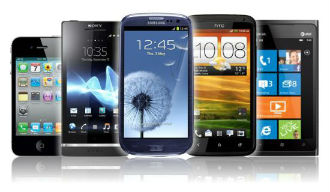 Over 375.2 million smartphones shipped during the fourth quarter of 2014 – that’s up by 28.2 percent compared to the same period the year before.
Over 375.2 million smartphones shipped during the fourth quarter of 2014 – that’s up by 28.2 percent compared to the same period the year before.
 Over 375.2 million smartphones shipped during the fourth quarter of 2014 – that’s up by 28.2 percent compared to the same period the year before.
Over 375.2 million smartphones shipped during the fourth quarter of 2014 – that’s up by 28.2 percent compared to the same period the year before.
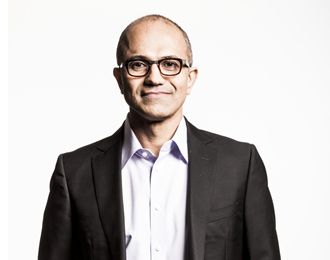 Software giant Microsoft has decided that people who use Android tablets will be able to download Office applications for nothing from today.
Software giant Microsoft has decided that people who use Android tablets will be able to download Office applications for nothing from today.
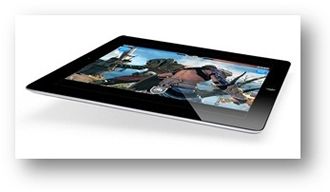 Despite reports suggesting that the market for tablets is in decay, fresh data shows that it ain’t necessarily so.
Despite reports suggesting that the market for tablets is in decay, fresh data shows that it ain’t necessarily so.
 Things went better for the notebook industry last year, according to a report from Taiwanese research house Trendforce.
Things went better for the notebook industry last year, according to a report from Taiwanese research house Trendforce.
 The Tame Apple Press is beside itself with joy as it reported that its favourite company had some rather good results.
The Tame Apple Press is beside itself with joy as it reported that its favourite company had some rather good results.
Phrases like “smashed Wall Street expectations.” “record sales” and “largest profit in corporate history” were liberally used.
The company sold 74.5 million iPhones in its fiscal first quarter ended December 27, while many analysts had expected fewer than 70 million. Revenues rose to $74.6 billion from $57.6 billion a year earlier.
S&P analyst Howard Silverblatt claimed that Apple’s $18 billion profit was the biggest ever reported by a public company, worldwide and Apple’s cash pile is now $178 billion, enough to buy IBM.
The Tame Apple Press were even more excited when Apple Chief Executive Officer Tim Cook said the Cupertino, California-based company would release the Apple Watch, in April, nearly two years behind the market.
The press rushed to find analysts who said that Apple was jolly brilliant while Microsoft and IBM had disappointing results.
However, as you might expect there was an element of selective reporting. For example, analysts expected Apple to sell more iPhones in China than the US – it did not. Although sales in China were “up 70 percent on last year” sales behind the bamboo curtain were not that great last year. The Tame Apple Press praised the company’s partnership with China Mobile for being responsible for the increase in sales, ignoring the fact they predicted earlier that China sales would be blistering.
Unable to blame Apple, Reuters blamed the Chinese economic slow down for the poor Chinese outing and instead claimed that Apple was well positioned to do better next year.
Apple reported net profit of $18.02 billion compared with $13.07 billion a year earlier. Analysts had expected revenue of $67.69 billion.
Cooler heads pointed out that Apple would face problems next year because of the stronger dollar and predicted that things would not be as good. Apple predicted revenue of $52 billion to $55 billion in its fiscal second quarter, compared with Wall Street’s average target of $53.79 billion.
Meanwhile Cook was touting new shiny things to encourage more positive talk about the outfit. Not only did he promise to release the iWatch which is now so out of date the specs were originally designed on the great pyramid, he talked about Apple’s new mobile payment service, Apple Pay which is, so far, to make much headway.
The largest profit in corporate history was Fannie Mae which made $84 billion in 2013.
 A buyout deal by Apple effectively nixed Motorola’s chance to put a fingerprint sensor under the bonnet of its Nexus 6.
A buyout deal by Apple effectively nixed Motorola’s chance to put a fingerprint sensor under the bonnet of its Nexus 6.
Motorola CEO Dennis Woodside said that the dimple at the back of the Nexus 6 was originally intended to play host to a fingerprint sensor. After all it had all the technology – it was a pioneer in bringing fingerprint recognition to its Atrix 4G smartphone.
At the time Motorola used Authentec which was purchased by Apple a year later for a price of $356 million.
Authentec was the best supplier around, “the second best supplier was the only one available to everyone else in the industry, and they weren’t there yet”.
Apple’s buy out effectively meant that the Nexus 6 was left without biometric authentication and the world was given the impression that Apple was the first to put the technology on a mainstream phone.
It looks like Motorola made the right move. The HTC One max had the slow and buggy experience that puts users off trying to use the feature.
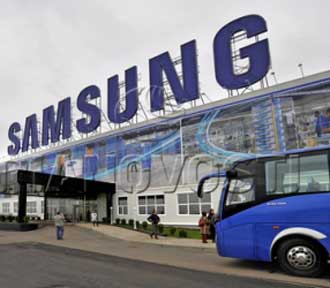 Apple and Samsung appear to have buried any hatchets they might have had during the legal battle over the shape of the smartphone.
Apple and Samsung appear to have buried any hatchets they might have had during the legal battle over the shape of the smartphone.
While the legal battle raised over such crucial matters as whether or not Steve Jobs invented the rounded rectangle, Apple moved away from Samsung as its main producer of chips. In fact analysts believed that in the long term Samsung would lose any Apple production completely.
According to the Maeil Business Newspaper it seems that Apple has changed its mind and Samsung is back to being the main supplier of processors powering Apple iPhones.
It looks like Samsung will be responsible for around 75 percent of the chip production for the next iPhone, the South Korean newspaper said.
The newspaper did not say how much the contract is worth and what other company will be supplying Apple. Samsung will make the chips from its factory in Austin, Texas, according to the report.
What appears to have happened is that not only has the row between Samsung and Apple cooled, Jobs’ Mob discovered that Samsung’s rivals, such as TSMC were not up to snuff or had capacity problems.
 Blackberry is fighting back against its competitors by asking politicians to step into the apps business.
Blackberry is fighting back against its competitors by asking politicians to step into the apps business.
 Chinese vendors managed to sell 453.4 million smartphones in 2014 – and total global shipments of the devices amounted to 1.167 billion units.
Chinese vendors managed to sell 453.4 million smartphones in 2014 – and total global shipments of the devices amounted to 1.167 billion units.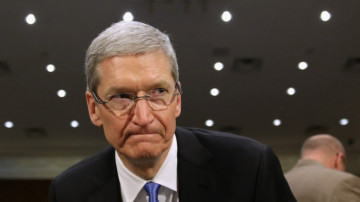 Apple’s voice activated personal assistant Siri is being used to steal sensitive information from iOS based smartphones.
Apple’s voice activated personal assistant Siri is being used to steal sensitive information from iOS based smartphones.
Luca Caviglione of the National Research Council of Italy and Wojciech Mazurczy of the Warsaw University of Technology warn that “malicious actors” could use Siri for stealthy data exfiltration by using a method that’s based on steganography, the practice of hiding information.
Clearly the malicious actors are hacked off that people have been stealing their pictures from the iCloud and posting them online and have taken Siri hostage.
iOS malware is also increasingly common, as the popularity of the iPhone is matched by the company’s misplaced belief in its own security vulnerability.
Mazurczy and Caviglione have demonstrated that iOS malware could become difficult to detect.
When users talk to Siri, their voice is processed with the Speex Codec, and the data is transmitted to Apple’s servers where the voice input is translated to text.
Using an attack method called iStegSiri, the “shape” of this traffic embeds sensitive data from the device. This covert channel could be used to send credit card numbers, Apple IDs, passwords, and other sensitive information from the phone to the criminals.
First, a secret message is converted into an audio sequence based on voice and silence alternation. Then, the sound pattern is provided to Siri as input through the internal microphone. Finally, the recipient of the secret message inspects the traffic going to Apple’s servers and extracts the information based on a decoding scheme..
In their experiments, Mazurczy and Caviglione managed to use this method to exfiltrate data at a rate of 0.5 bytes per second. At this speed, it would take roughly 2 minutes to send a 16-digit payment card number to the attacker.
It only works on jail broken devices and attackers somehow need to be able to intercept the modified Siri traffic. However, the researchers highlighted that the purpose of iStegSiri is to help the security community with the detection of malware on the iOS platform.
The researchers told IEEE Spectrum that they have not made specific details on iStegSiri public to prevent cybercriminals from using their work. We guess that Apple have not modified anything in the iOS to stop it happening if someone works it out.
 Google is having a quiet word with the mobile-payments company Softcard with a view to buying the outfit.
Google is having a quiet word with the mobile-payments company Softcard with a view to buying the outfit.
The move would link Google with the largest US wireless carriers to battle Apple and its much hyped but mostly ignored Apple Pay service.
The deal may be valued below $100 million, the report said citing sources.
Softcard is jointly owned by AT&T, Verizon Communication, Verizon Wireless and T-Mobile US.
So far it is seen as rumour and speculation and no one is commenting on the record about it. However, if Google does buy the outfit it will give it significant clout in the payment markets. However, at the moment most of the focus is on the bigger retailers coming up with payment systems of their own.
The fear with Google or Apple getting their paws on transaction data is that you can be bothered by advertising based on your buying history, which could be embarrassing if you went to a stripper club once.
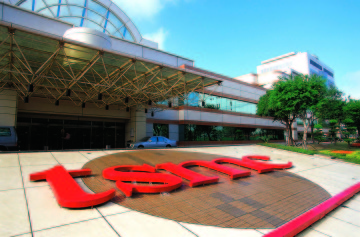 TSMC has reported record quarterly net profit and revenue thanks to strong sales of smartphones from its clients.
TSMC has reported record quarterly net profit and revenue thanks to strong sales of smartphones from its clients.
TSMC earned about $3 billion in net profit in October-December which doubles the results posted at the same time last year and slightly more than the last quarter.
Demand for increasingly feature-rich gadgets has led to a burst in growth for companies such as TSMC and local peer United Microelectronics, whose chips power features from fingerprint sensors to fourth-generation (4G) LTE receivers.
In the fourth quarter, TSMC’s profit margin decreased to 35.9 percent from 40.4 percent in the third quarter in October-December revenue.
However, things are not looking that good for TSMC’s future. Analysts are divided about whether Apple will select TSMC to produce chips for its next-generation smartphones. There are questions as to whether it can create the next generation chips Apple wants .
Samsung, which is TSMC’s main competitor for Apple custom, has previously said it is seeing increased demand for chips made with 14 nanometre technology, the likes of which could power the successor to the iPhone 6.
Now that the war between Apple and Samsung is cooling, it appears that Jobs’ Mob might return to its old chipmaker ally and leave TSMC high and dry.